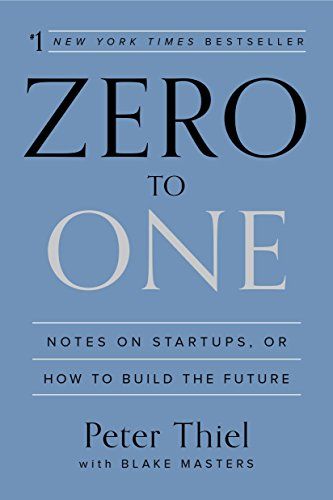List of Awesomeness #4

In this installation I won’t be providing any book or paper suggestions. Instead I will summarize some of my thoughts on the previous list.
Papers
Not adding a new serious paper this week in order to give time to those who are still on Mr. Einstein’s papers. For the non-scientific readers, I do want to highlight some of the implications of these individual papers:
Photoelectric Effect (Paper #1) : Light falling on some materials produces electrons.
- Without this single paper, probably, there wouldn’t be any solar energy. Solar cells are based on the Photoelectric Effect.
- 178 GW of clean solar energy generated today worldwide by solar cells.
- More than 95% of space operations (including all satellites, space telescopes & space shuttles) depend on solar cells.
- Without this single paper, probably, there wouldn’t be any photocells (something which regulates current based on light falling on it)
- Applications of photocells include – sound in movies, ALL cameras (in order to regulate entering light a.k.a. exposure), street lights , hand held calculators, low voltage landscape lighting, automatic car head lights, battery charges, automatic rest room controls, etc.
Special Relativity (Paper #4) : Speed of light is the upper constant limit of speed in our universe
- Time Travel – If you have a really fast ship, you can easily time travel into the future but cannot go into the past.
- Time slows down for you if you increase your speed.
- CERN & other particle accelerators – work only because of the point above. Sub-atomic particles are accelerated at high speeds in order to slow down time for them and make them discoverable by scientists.
- E=mc^2
E=mc^2 (Paper #5) : All matter is energy and all energy is matter
- Explained nuclear fission & fusion AND answered 2 questions: “How the Sun burns?” and “How to make a nuclear bomb and completely incinerate cities full of people & thus win World War II ?”
- A single human body can power United States for 16 years.
Books
I just finished Zero to One 2 days ago and would like to talk about a few things which I think is not only applicable to people starting a company but also to people in general – a reason why everyone should read it (**SPOILERS BELOW**)

- “Madness is rare in individuals – but in groups, parties, nations, and ages it is the rule. If you can identify a delusional popular belief, you can find what lies hidden behind it: the contrarian truth” – I have found it increasingly true in all aspects of society: politics, businesses, law & order, religion, etc. The financial crisis, the dot-com bubble, the US housing bubble, early bitcoin madness & even the Great Depression of 1930s are all examples of such conventional mass beliefs which started in delusion and ended with the truth coming out.
- “Non-monopolists exaggerate their distinction by defining their market as the intersection of various smaller markets. Monopolists, by contrast, disguise their monopoly by framing their market as the union of several large markets” – Google does it really well. They have a monopoly in search but they say they are a tech company building mobile, ads, cars, wearable computers, etc which makes them look like just another player in the competition. On the other hand, every Fast & Furious movie tries to showcase its monopoly by exaggerating how this time “this film will combine various exciting elements in entirely new ways” – it doesn’t.
- “All happy companies are different: each one earns a monopoly by solving a unique problem. All failed companies are the same: they failed to escape competition” – I find it true not only for companies but also teams within companies. Talking from my experience in RBS, most of the big banks on the street have dropped their Research teams but not their FX teams. This is primarily because Research teams in most big banks were pretty much coming out with the same thing, content or delivery wise, hence they failed to escape the competition a.k.a. Independent Research firms, offering the same analysis at cheaper prices. On the contrary, FX teams have flourished and even grown in some places because most of the big players are solving a unique problem (cross asset hedging, internalized transactions, desktop/web/mobile tech platform, faster execution, ease of accepting cross-currency payments, retail vs corporate focus, etc.)
- “Indefinite optimist thinks the future will be better but he doesn’t know how exactly, so he won’t make any specific plans” – Our world currently is almost definitely indefinitely optimistic. Finance, politics, philosophy and even our outlook towards life fall under this category. South America was discovered only because Spaniards wanted to find the Fountain of Youth. Somehow now we are very content with the fact that insurance companies tell us our “statistical life expectancy”. This seems absurd because best minds in history had thought of death as something to defeat and somehow we have lost that spirit. In philosophy, politics and business as well, often, process trumps concrete plans for the future.
- “Our schools provide institutionalized education which traffics in a kind of homogenized, generic knowledge” – I find it strange that we are taught the same things, tested to find out who has done the best job at knowing it and then when we join the workforce we are somehow expected to be creative and different! I am not saying that everyone needs to learn something different but just that everyone has a different learning and thinking appetite and somehow we need our schools to understand and implement that if we are looking for a better society.
Article
http://waitbutwhy.com/2014/05/fermi-paradox.html – Fermi Paradox tries to seek an answer to “Where are the aliens?”. And as the article mentions, it’s because either “We’re Rare or We’re First or We’re Fucked“. One of the best articles which has stayed with me (and a lot of people I know) for a really long time.
Cheerio!